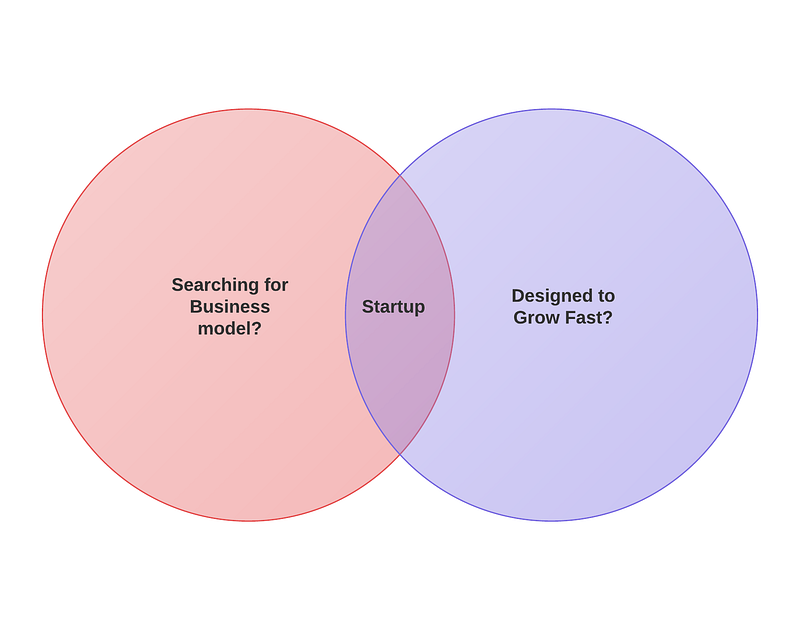You don’t need A-players

And your business is not a startup
An oft-repeated phrase talks about hiring A-players for your startup. Guy Kawasaki may have gotten this started when he published this in 2006:
In the Macintosh Division, we had a saying, “A player hire A players; B players hire C players”—meaning that great people hire great people. On the other hand, mediocre people hire candidates who are not as good as they are, so they can feel superior to them.
Since then we’ve seen an explosion in “startups” around the world, with events like Startup Weekend and Startup Chile emphasizing the glamour of a startup. Meanwhile we continue talking about the need to hire A-players, as though this is the secret to success.
Your business is not a startup
I count many entrepreneurs as friends, but they run good ol’ businesses, not startups. What is a startup?
Steve Blank defines it as the search for a business model:
A startup is an organization formed to search for a repeatable and scalable business model.
Paul Graham adds an emphasis on growth:
A startup is a company designed to grow fast. Being newly founded does not in itself make a company a startup. Nor is it necessary for a startup to work on technology, or take venture funding, or have some sort of “exit.” The only essential thing is growth. Everything else we associate with startups follows from growth.
So we have two key facets of startups: searching for a model and growing fast.
Maybe your company is in high tech and has revenues of $40M per year. Maybe you’re developing a new app for your existing customers. Maybe you consult for clients on design or SEO or some other interesting niche.

You probably have an interesting business, but you are not in a startup.
Defining the A-player
A-players are the 10x rockstar developers; the growth hackers who bake growth into your product; the executive who has raised $80M over twenty years even without managing a profitable business.
A-players chart their own maps for others to follow and can make adjustments to the maps as needed. They thrive under extreme uncertainty.
Why Startups Need A-players
Do startups need A-players? I think they do, for two reasons: speed and adaptation.
A funded startup, positioned for high growth, is constrained more by headcount than capital. With every new hire, the communication overhead increases exponentially and the nascent culture fragments. Because of this, every new hire paradoxically offers more capacity in the straightaways but at a cost of slower turns.
A company searching for a business model needs an adaptable team capable of identifying when to pivot and then executing brilliantly. The extreme uncertainty of finding success must be offset by the extreme confidence (not hubris) that comes with being the best.
Not a Startup? Grow with B-players
If your business is not a startup by the above definitions, you should focus on finding the best B-players and then relentlessly train them. This sounds bad (who wants to be a B-player?) but it may be your best option.
B-players initially cost you less than A-players. Suppose that Rockstar developer, capable of doing the work of ten average developers, costs $250k to hire versus $80k for the average developer. You don’t have $10M in funding, enticing stock options, or $250k in cash this year. You do have $80k budgeted this year. Would you rather hire an average developer for a year or wait another twelve months and hope you can get the Rockstar developer?
Eventually, your high growth can be at risk if you hire B-players. But that is the point: if your business isn’t in a high growth trajectory, you won’t have anything to risk.
B-players stay longer. B-players are more likely to find satisfaction in their work and stay awhile. B-players will accept small but steady growth in their income and find meaning in other parts of their life. They have less FOMO if Google and Facebook don’t call them every week and they don’t want to start their own thing.
If your business works within a defined business model, B-players will embrace this model and the stories around it. B-players will be part of the foundation on which you lay a sustainable company bigger than any one person.
The Real Challenge: Training your B-players
The problem most non-startup businesses face isn’t finding the best people for their business, but empowering the people they have with the right tools.
As the founder of your company, you must work on your business rather than simply in your business. You must define the processes for your employees to follow and develop a system that will continue to operate without you. Anything else is basically self employment.
Systems: Your Best Hire
In building a proper system, you’ll find you no longer need a virtual assistant. You’ll no longer need to participate in every decision, because your process and principles will form the foundation of every conversation. You won’t need to hire multiple replacements: in your documentation, you’ll have the specific map for your employees to follow and built-in tests to measure their success in following the map.
Your business is not a startup? You don’t need A-players. Document your system, find awesome B-players, and grow around them.